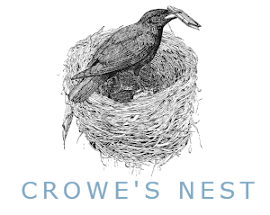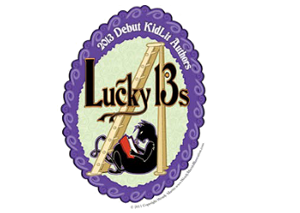
Thursday, February 12, 2015
Writers and Jobs
Ever wondered what kind of an effect writing skills have on your (future or present) job(s)? Check out this post by Grammarly. Leave a comment, and on February 17 I'll let random.org choose one commenter to win a free account (where it checks your grammar-- the things your word processor misses. So awesome!), courtesy the awesome folks at Grammarly.


Monday, February 9, 2015
Reveal of some amazing covers for Elana Johnson's ELEMENTAL series
Are you ready to see some amazing stare-at-all-day book covers? They come attached to some equally amazing books. I LOVED this series! It's one of those that keeps you thinking about it (and wishing you lived in a world with this magic system) for weeks afterward! I highly recommend reading.
And here they are! Check them out in all their beautiful glory. (Click to embiggen. They make huge look incredible.)
About ELEMENTAL RUSH: Eighteen-year-old Adam Gillman has trained for twelve years to earn a coveted spot on the Supreme Elemental’s elite sentry squad. His brother, Felix, is the commander, but Adam is still thrilled when his official assignment to serve Alexander Pederson comes.ELEMENTAL RUSH is a prequel novella to the full-length futuristic fantasy novel, ELEMENTAL HUNGER.
He moves into nicer quarters and can stop getting up at four a.m. to complete his mandated work out time. He still rises early though, because he needs the solitude of early morning to practice his airmaking Element—something that Adam has kept secret from everyone, even Felix, because he can’t be both an Airmaker and a sentry.
When Alex assigns him to kill a group of rogue Elementals, he balks at completing his mission for the first time. See, his only friend is Isaiah Hawking, and he’s the Earthmover on the accused Council. When faced with the prospect of killing him, Adam finds he can’t do it.
He’s well trained in assassination, but he thought he’d be murdering bad guys—not innocents.
When Alex buries the Elemental Academy—and kills over one thousand Elementals—in a fit of rage, Adam’s loyalty cracks. When he discovers that Alex is really a woman, and his brother’s lover, he defects. He hops from city to city, from Elemental school to Elemental school, always escaping only minutes before Felix can embed a knife in his heart or a tsunami can make a classroom his watery grave.
He tries to fight back, but he’s just one Airmaster with exceptional tracking skills. He does his best to warn those in danger, but as the last Elemental school goes up in flames, he knows he needs to get some real firepower on his side.
To purchase:
About ELEMENTAL HUNGER: The second installment in the Elemental series, a new futuristic fantasy for young adults and new adults from acclaimed author Elana Johnson, ELEMENTAL HUNGER is a full-length novel that continues the story that began in ELEMENTAL RUSH, an Elemental novella.
Sixteen-year-old Gabriella Kilpatrick can shoot fire from her hands, which would be great if she didn’t get blamed for a blazing inferno that kills 17 schoolmates. When Gabby is commanded to Manifest her Element, everyone knows what she is: a genetic abnormality. Not to mention guilty.
So she does two logical things to survive.
1. She runs.
2. She hacks off her hair to assume a new role—that of “Gabe”, because in her world, only boys are Firemakers.
Not only does she have to act like a guy, she has to pretend to know everything a Firemaker should know. When Gabby meets Airmaster Adam Gillman, he believes her act and pledges to serve on “Gabe’s” Council. But Adam has the mark of a sentry and spent years obeying Alex, the Supreme Elemental. And Alex wants Gabby-the-genetic-freak dead and gone before she can gather the magical protection of a full Council.
With Adam’s lies that sound like truths and rumors that Alex isn’t really a Firemaker—or a man—Gabby sets out to charter a Council of her own. In order to uncover the truth, Gabby will have to learn who she can trust, how to control her own power, and most of all, how to lead a Council of Elementals, most of whom have more control over their power than she does. If she can’t, she’ll find herself just like those 17 schoolmates: burned and six feet under.
To purchase:
About ELEMENTAL RELEASE: Two months after returning to the capital city of Tarpulin with a Council of his own, Airmaster Adam Gillman is ready to start repairing the relationships in his life. Up first: his Councilman and the girl he’d like to be more than friends with, Gabriella Kilpatrick.
But first, he has to figure out how to be the Airmaster his Firemaker needs. In order to do that, Adam attends Elemental training and discovers that to truly command the air, he must first be in control of his emotions. And in order to master those, he has to grieve for the loss of Hanai, make amends with his brother, and earn the trust of Gabby.
Amidst all that, Adam must also learn how to grapple with the jet stream, because a dangerous Airmaster is loose in Tarpulin. And Adam will need to find his emotional center in order to work with the atmosphere and defeat the threat.
To purchase:
About Elana Johnson: Elana Johnson’s work, including Possession, Surrender, Abandon, and Regret, published by Simon Pulse (Simon and Schuster), is available now everywhere books are sold. Her popular ebook, From the Query to the Call, is also available for download, as well as a Possession short story, Resist.
Her self-published novels include two YA contemporary novels-in-verse, Elevated and Something About Love, as well as a YA/NA futuristic fantasy series, which includes Elemental Rush, Elemental Hunger, and Elemental Release.
School teacher by day, Query Ninja by night, you can find her online at her personal blog or Twitter. She also co-founded the Query Tracker blog and WriteOnCon, and contributes to the League of Extraordinary Writers.
Find Elana online:
Website/blog | Twitter | Facebook | Tumblr | Wattpad
League of Extraordinary Writers | WriteOnCon | Elana on Goodreads
League of Extraordinary Writers | WriteOnCon | Elana on Goodreads
Enter to win $10 for helping to spread the word about the new ELEMENTAL series covers!

Tuesday, February 3, 2015
Weaving A Magic System: A guest post by WOVEN authors David Powers King and Michael Jensen
I have known David Powers King (DPK in my book) for quite a while now, and got to hear lots about the book he co-authored with Michael Jensen long before it found a home sweet home at Scholastic. So I was thrilled to be able to read it early! It had an incredible, unique, fascinating magic system. I asked DPK and Michael if they would tell us a little about what goes in to creating a magic system. Take it away, Michael and DPK!
Questions To Ask Before Weaving A Magic System
When writing fantasy, including a magic system is usually (but not always) expected. There is no set method for creating a magic system, and plenty of useful guides online. Should you decide to include magic in your story, there are a few things worth considering. We’ll tell the questions we asked and show you how our magic system evolved from the early stages of writing our novel.
1) What is the story about?
When creating Woven, we knew our story was about a princess and a ghost in search of a needle that can bring the ghost back to life. For this supposed needle to have this kind of power, it needs magic—what kind? After exploring sewing and weaving, we decided to base our magic on them.
2) How is this magic manifested, and what does it do?
Since sewing and weaving led to some wonderful parallels and plenty of room for symbolism, we looked into every aspect of the trade. This included visiting fabric stores and interviewing tailors. Then we created a list of all the tools used and gave each one a special, alternative use, the consequences for using them, how it looks, and how it makes the magical user feel.
Take notes and write a Magic Bible. We call ours The Woven Book.
3) Should we have rules and laws for using this magic?
We certainly wanted consequences, good or bad, for using magic. This required us to think of limitations, exceptions, and alternatives. When you add these to your magic bible and apply it to the story, the magic becomes real and less chaotic.
4) How does this magic impact the world, and who can use it?
If magic is widely known, everything from bath water to politics will be affected. If not so common, it can be a trade secret or something to be feared by people, rationally or not. We went in the middle by creating a system that was widely known, but few practice it. That way the idea of magic existing isn’t foreign to people, yet still not something seen every day.
5) When should we explain how the magic works?
There’s no need to bog readers down with explanations up front. It’s far more interesting to show a little magic and let the reader wonder how things work first. It’s not until a third of the way into Woven before an explanation is given. Even then, we hardly reveal much. Some of the elements didn’t make the cut, but we plan to use them in other books.
Many of the most beloved fantasy novels have a well thought-out magic system. Go ahead and take your time developing it so your magic can hold its ground among the giants. Good luck!
WOVEN by Michael Jensen and David Powers King, published by Scholastic
Two unlikely allies must journey across a kingdom in the hopes of thwarting death itself.
All his life, Nels has wanted to be a knight of the kingdom of Avërand. Tall and strong, and with a knack for helping those in need, the people of his sleepy little village have even taken to calling him the Knight of Cobblestown.
But that was before Nels died, murdered outside his home by a mysterious figure.
Now the young hero has awoken as a ghost, invisible to all around him save one person—his only hope for understanding what happened to him—the kingdom’s heir, Princess Tyra. At first the spoiled royal wants nothing to do with Nels, but as the mystery of his death unravels, the two find themselves linked by a secret, and an enemy who could be hiding behind any face.
Nels and Tyra have no choice but to abscond from the castle, charting a hidden world of tangled magic and forlorn phantoms. They must seek out an ancient needle with the power to mend what has been torn, and they have to move fast. Because soon Nels will disappear forever.
IndieBound | Amazon | Barnes and Noble | Books A Million | Rakuten | iTunes
a Rafflecopter giveaway
About the Authors:
For an extra bit of awesome, they are giving away 5 SIGNED COPIES OF WOVEN! How awesome is that? Go forth and enter:
a Rafflecopter giveaway
 |
| Photo credit: Michael Schoenfeld |
 |
| Photo credit: Katie Pyne Rasmussen |

Subscribe to:
Comments (Atom)








































